A playground memory still haunts philanthropist Sammy Moon. In Monroe County, Miss., sometime in the early 1960s, the then-fifth grade boy was holding onto the bars of a playground carousel at the Becker School as he and other children spun around in circles. He had not given any thought to the fact that he was the only boy on it—until a teacher leaned out of her classroom window and called out his name, using a finger to motion him toward her.
“Why don’t you just put a dress on, and you can be a girl?” Mrs. Hansen, a fourth grade teacher, chided.
Young Sammy froze in fear.
“What is wrong with me that she already knows I am different?” the boy thought to himself, as he sheepishly walked away.
Moon, now 71, has been thinking lately about kids who still deal with those kinds of fears today, and the atmosphere of fear that enveloped him in Becker, a suburb of Amory, Miss. The town is about 30 miles southeast of Tupelo, where a socially conservative Baptist church was “the biggest entity in town.” He is the founder of the LGBTQ Fund of Mississippi, a nonprofit that is already investing resources into organizations and efforts to address the needs of LGBTQ people in Mississippi. The fund publicly launched on June 29.
In May, the LGBTQ Fund awarded its first $112,000 in grants to a variety of organizations focused on lesbian, gay, bisexual and transgender individuals. The money went to groups dealing with legal advocacy, mental health, homeless youth, art, history, academics, and the intersections between race, sexuality and gender identity.
‘It Would’ve Been Night and Day’
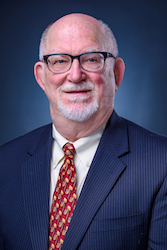
The Jackson-based fund’s website describes a vision in which “all LGBTQ Mississippians will live safely, openly and without alienation, isolation, prejudice and/or discrimination”—the opposite of the experiences Moon recounts growing up in the Magnolia State. If a fund like this had existed when he was young, Moon said, it could have made “all the difference in the world.”
“It would’ve been night and day. When you’re a kid like I was and like many kids, particularly those in rural areas where there is nothing but some religious entity that’s telling them they’re going to hell, when you’re in that environment, it feels like you are so alone,” Moon told the Mississippi Free Press in May.
Though he did not have a word for it as a child, Moon, who loved playing baseball and basketball, knew he “was different from the other guys.”
The incident with Mrs. Hansen occurred years before President Lyndon B. Johnson signed the Civil Rights Act in 1964, before the world witnessed an astronaut plant an American flag on the moon, and well before a group of LGBTQ people kicked off the modern gay-rights movement with the 1969 Stonewall Riots in Greenwich Village in New York City.
Sammy Moon would not even learn there was a word for what he was until a few years after the fourth-grade teacher’s stinging words. Around age 13, he first encountered the word “homosexual” in one of his mother’s magazines.
“I thought, ‘Oh my God, there is a word for this, and there is a label for this, and this is bad.’ Because there it was in print,” Moon said.
‘Bravery and Personal Sacrifices’
Though Mississippi has changed considerably since the early 1960s, as evinced by this week’s retiring of the Confederate-themed 1894 Mississippi State Flag, thousands of gay kids, teens, and young adults in the state still experience the kind of isolation and terror Moon once felt.
Deroll Barrett described the LGBTQ Fund’s work as “revolutionary” in a state with such a deep legacy of oppression against LGBTQ people.
He is the executive director of Youth Improvement Services, a nonprofit agency that works to provide stabilization in the lives of at-risk youth. He told the Mississippi Free Press that he noticed that a huge need in the Jackson area for services for homeless LGBTQ youth, but there were no organizations catering to this need. Additionally, Barrett said his work as social development director at the Crystal Springs’ Job Corps for eight years gave him a particular insight into LGBTQ homelessness.
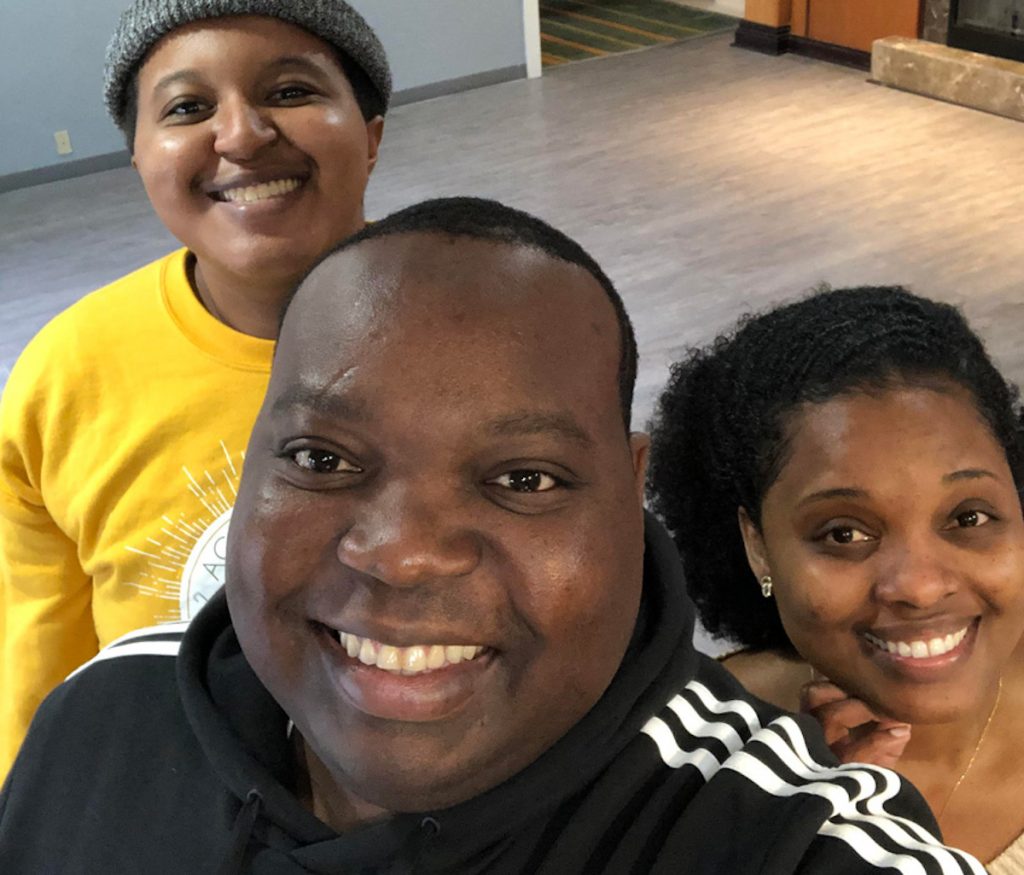
“When it was time to go home for breaks, many LGBTQ young people had nowhere to go, so they ended up staying at the center or couch-surfed until it was time to come back,” Barrett said. Local homeless shelters consistently denied space to these young people from Job Corps because they had no room for new clients.
“Most shelters are for the ‘chronically homeless,’ and most young people experience ‘episodic homelessness,’ meaning it’s temporary,” Barrett said. “We decided to launch Youth Improvement Services, so we could reach those who are in need, stabilize their lives and help them become independent.”
In America, up to 1.6 million young people between 12-17 experience homelessness, and between 20% and 40% of them identify as LGBTQ, the U.S. Department of Health and Human Services reports.
Barrett described high rates of LGBTQ youth homelessness as rooted in “a lack of social and economic opportunity.”
“For LGBTQ youth, there is stigma, discrimination and marginalization,” Barrett said. “They have been subjected to many years of limited opportunity,” which Barrett said is solely based on identity discrimination.
An especially acute need for housing for young transgender Mississippians pushed Youth Improvement Services to apply for funding from the LGBTQ Fund of Mississippi. The fund awarded the organization $6,000, which it will use to first place Mississippi’s transgender youth in temporary housing and then to find employment and eventually permanent housing.
Barrett said he believes the fund will give transgender youth “the boost that they need to realize that they matter to, and that they can do whatever they put their minds to.”
“I want to thank and recognize Sammy Moon,” Barrett said, “because it took a lot of bravery and personal sacrifice to put the fund together.”
‘Basic Human Needs … Are Not Being Met’
After high school, Moon attended and graduated from the University of Mississippi before moving to Jackson, where he worked for nonprofits like the United Way throughout the 1980s. It was a decade defined by bold, colorful fashion and superstars who challenged norms about gender and sexuality—including artists like Prince, David Bowie and Freddie Mercury. But down in Mississippi, Moon still “had not come out or reconciled the idea that there’s a way to be out, open and proud and gay in Mississippi,” he told the Mississippi Free Press.
So when the opportunity came for a job with the United Way in the more gay-friendly San Diego, Calif., he took it.
“I’d worked for an organization that had anti-discrimination policies that included sexual orientation, but it was the first time I was ever around and exposed to a culture and an environment where I felt like, ‘I can be who I am,’” he said.
For Massachusetts native Jensen Luke Matar, though, moving to Mississippi in 2015 was an “opportunity for a clean slate” and a chance to begin his public life as a man said Jensen Luke Matar, coordinator of the American Civil Liberties Union of Mississippi’s Transgender Education and Advocacy Program. Quickly, however, Matar realized that Mississippi lacked the necessary resources for transitioning including willing doctors and therapists.
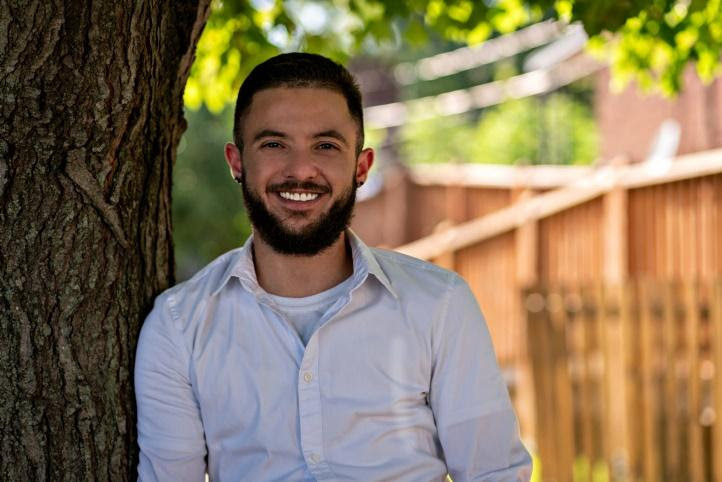
“I was miserable,” Matar said. “I ended up doing a lot of what I needed to do online which was not ideal for what I was going through.”
In the midst of this struggle Matar was a retail manager where he suffered discrimination from customers and his boss. During consistent communication with one of his store’s national human resources managers, Matar said he “accidentally” influenced company-wide policy change, which caught the attention of and impressed the American Civil Liberties Union of Mississippi.
The ACLU of Mississippi created TEAP-MS, where Matar was a volunteer for three years before becoming advocacy coordinator, because “the basic human needs” of trans identifying Mississippians “are not being met,” Matar said. TEAP does work in the areas of coalition building, trans and gender non-conforming advocacy leadership development, and general public education on the experiences of trans and gender non-conforming identifying people.
The LGBTQ Fund’s $15,000 award to the ACLU of Mississippi will pay for three specific TEAP-MS initiatives. A portion of the money will go toward pastoral-care trainings intended to help faith communities better understand and assist transgender individuals.
The funds will also support TEAP’s oral history project titled “I Too Am Mississippi,” or ITAM, and capture the histories of trans people of color and trans youth specifically “because they are disproportionately impacted by the issues the larger trans community is impacted by,” Matar said.
ID Me will also benefit from the fund’s award. The ACLU’s website describes it as “an advocacy-led program” that provides” a step-by-step guide and legal assistance to those seeking name/gender marker changes” to ensure voting rights for trans individuals.
“Without the money, we wouldn’t be able to do the work,” Matar said.
The fund’s first round of grants also includes $15,000 for the University of Mississippi Medical Center’s TEAM Clinic, which offers mental health resources for transgender people after gender-affirming surgery.
Tiffany Mitchell, a key leader within TEAP, said without its assistance changing her name legally she would have been “lost” on how to do it herself.
“When I went to the ACLU, Jensen was immediately like ‘Well, Tiffany we can do this,’” Mitchell said. “Having that kind of support meant a lot because I didn’t know how things were going to go or if I was going to get turned around at the courts, and Jensen beared with me throughout the entire process.”
An anonymous source told the Mississippi Free Press that TEAP is helping with getting their name changed through ID Me, made their most recent job experience “possible” and comfortable, and kept them from being turned away from the polls in the March primary.
Like Mitchell, the source said they would have been “lost” during their name change without Matar and TEAP. “It’s a tough process, and with all the moving parts I think it’s extremely important to have a program that helps trans people step by step,” the source said.
For Matar, the LGBTQ Fund is “crucial” because it shows that the state’s LGBTQ leaders “can take care of their own.”
“Too often Mississippi is used to outsiders coming in to save the day,” Matar said. “The efforts need to be led by us, and the LGBTQ Fund of Mississippi will carry our work further than any other effort that has been made thus far.”
‘What Do We Do Here?’
In the early 2010s, one of Mississippi’s long-gone sons and his partner returned from his time on the outside to a state that was on the verge of a series of battles over LGBTQ rights.
Sammy Moon and his partner, Jeffrey Karer, a Laurel, Miss., native, had left the West Coast by the late 1990s, and he spent the rest of that decade and all of the next working for nonprofits in Boston, Atlanta and finally Baltimore. After a quarter century of working in places far different from Mississippi, though, Moon decided to retire from his work in Maryland at the Annie E. Casey Foundation. He and Karer decided to finally go home and enjoy the benefits of the Magnolia State’s lower cost-of-living.
“When I got back, I realized that part of our assumption in moving back was that things would have changed quite a bit in this state over 25 years and that there would be a more open, accepting, progressive environment here than there was when we had left 25 years before that,” Moon told the Mississippi Free Press.
During his time away, though, Mississippi had taken steps to guard against a future national expansion in LGBTQ rights. In 2000, the Legislature banned lesbian and gay couples from adopting children. In November 2004, 86% of Mississippi voters voted to ban same-sex marriage.
Then-George W. Bush campaign manager Ken Mehlman had helped engineer those referendums in 11 states that year as a ploy to boost turnout among evangelical Christians and help the Republican president win re-election amid simmering displeasure with the Iraq War among the electorate (Mehlman later came out as gay himself in 2012, and apologized for his role in the cynical strategy just as he apologized to the NAACP in 2005 for the Republican Party’s southern strategy to woo racist white voters).
At the start of the 2010s, Moon returned to a state where a series of anti-LGBTQ discrimination cases in Mississippi had begun making national headlines. That included the case of Andre Cooley, a Forrest County deputy corrections officer who said the department discovered he was gay when officers responded to a 911 call he had placed to report that his boyfriend had allegedly become violent. Cooley, with assistance from the Mississippi ACLU, procured a settlement, and the department reinstated him.
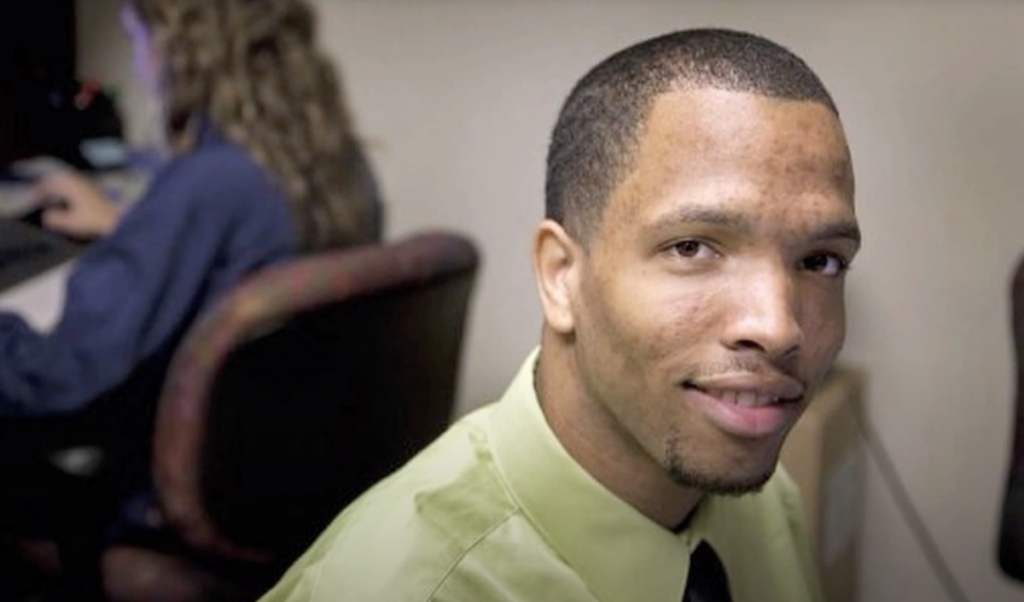
As the inevitability of LGBTQ rights became more apparent, Mississippi fought back. When the U.S. Supreme Court ruled that married same-sex couples must be afforded equal benefits to opposite-sex couples and struck the Defense of Marriage Act in 2013, Mississippi responded the next year with Senate Bill 2681, also known as the “Mississippi Religious Freedom Restoration Act.” LGBTQ rights groups warned that the bill could give business owners an excuse to discriminate against LGBTQ people.
Then, when the nation’s high court finally struck down all same-sex marriage bans nationwide, including the Mississippi one, the Mississippi Legislature and then-Gov. Phil Bryant once again responded with “religious liberty” legislation. The 2016 bill, though, House Bill 1523, was more explicit in the kind of discrimination in services or employeement it allowed.
The “Religious Liberty Accommodations Act” grants special protections to three religious beliefs, including the belief that marriage is an exclusively heterosexual institution, that sex outside of marriage is wrong, and that gender and “biological sex” are inseparable.
‘I Realized I Needed to Stay Here’
“The vitriol and the ugly scene around LGBTQ issues in Mississippi just came back like this wave,” Sammy Moon told the Mississippi Free Press. “And frankly, at that point, it was like, ‘Holy crap, what do we do where? Do we stay in this environment or do we flee somewhere else?’”
In the bitter crucible of Mississippi’s anti-LGBTQ legislative fervor, the idea for the LGBTQ Fund of Mississippi took root.
“The more we thought about it, the more I realized that so many people leave Mississippi because of that, and if some of them don’t stay and try to make things different, it’s always going to be that way,” Moon said. “And so at that point, I realized I needed to stay here and try to work in my home state to make things different and better than they are now.”
With his experience in foundations and philanthropy and a lack of funding for services geared toward LGBTQ people, Moon got to work in 2015, a year after Gov. Bryant signed the first religious-liberty law.
With assistance from friends, nonprofit experts across the state, and organizations like the Durham, N.C.-based Out in the South organization, Moon spent the next several years working to build the fund. An 18-member planning committee held its first meeting in January 2017. The fund’s volunteer organizers spent three years piecing it together, with a goal of sending out their first grants once the fund raised $100,000.
Three doctoral students at Mississippi State University proved invaluable. Izzy Pellegrine, Melanie Walsh and Amanda Gochanour were conducting a statewide needs assessment on LGBTQ people across the state, with vital information on the neighborhoods and communities they lived in, their physical and mental health, their employment situations, and the schools and churches they attend—all information Moon and the fund’s organizers knew they needed, but which had not been available before.
“For us, this incredible set of information tells us where the needs are, what the priorities should be, and how we ought to be investing,” he said. “And we had to have that in place. And if you go to our website, you can download the whole set, and it’s an incredible piece of work. And we’re indebted to those students and to Mississippi State for doing it.”
The fund surpassed its threshold and announced its first round of grants, totaling $112,709 spread out across 15 organizations, on May 1, 2020.
One of the LGBTQ Fund’s first recipients is the Fondren Presbyterian Church in Jackson, which received $3,500 for its Gender and Sexual Diversity Interfaith Collaborative.
“We funded them to explore the creation of a statewide interfaith network that would engage in dialogue and deal with the overtone of religious oppression, because in many ways, it is oppression—like I grew up with,” Moon told the Mississippi Free Press. “And they’re going to ask, can Mississippi support an interfaith dialogue on LGBTQ issues?”
In a June 30 LGBTQ Fund press statement, Rob Lowry, the Presbyterian church’s pastor, said he was “grateful” for the investment.
“Across the nation, faith-based groups cross denominational and religious lines to come together to create safe spaces for LGBTQ people to grow and gather, and to build on the unique strength of interfaith cooperation,” Lowry said. “Jackson should be no exception.”
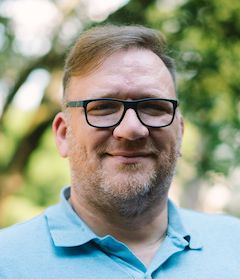
But with the “religious liberty” laws still in effect, safety from discrimination is far from guaranteed statewide—even in employment. Last month, the Asheville, N.C.-based Campaign for Southern Equality told the Mississippi Free Press that is it looking for plaintiffs to mount a new challenge to the Religious Liberty Accommodations Act after the U.S. Supreme Court ruled that the 1964 Civil Rights Act’s employment nondiscrimination protections also cover LGBTQ people. CSE also unsuccessfully challenged House Bill 1523, following a successful lawsuit that overturned Mississippi’s ban on adoption by same-sex couples.
CSE is another grant recipient, with the LGBTQ Fund awarding it $15,000. CSE successfully sued the state to end its ban on same-sex adoptions in 2015 and also unsuccessfully challenged House Bill 1523. CSE will invest the money back into Mississippi, Moon said, by microgranting projects.
“If there’s someone trying to do something in a little rural town in Mississippi and $500 will help them bring people together for a conversation, they can fund it,” Moon said. “They also bring a training capacity for very small, emerging grassroots work across the state.”
CSE is also involved in work in LGBTQ health across the South, where they have collected data and issued reports on the specific health challenges for LGBTQ individuals in states like Mississippi.
HIV Patients in Jackson ‘Didn’t See the Same Possibilities’
Ten years ago, when Jason McCarty was living in Manhattan, a friend back home in Jackson was diagnosed with HIV. “Ten years ago the diagnosis felt like a death sentence to him,” McCarty said. After his friend took his own life, McCarty said he realized the progressive HIV culture that surrounded him in New York was extremely removed from the realities of HIV positive individuals in Mississippi.
“I realized that people diagnosed here (in Jackson) didn’t see the same possibilities,” McCarty said. When he returned to Jackson, he was unable to shake the memory of his friend’s struggle and made a commitment to HIV advocacy.
A 2016 Centers for Disease Control report revealed that Jackson metropolitan area has the fourth highest HIV infection rate in the nation, and that the South makes up 45% of the nation’s HIV diagnoses.

“It’s a true honor and a true passion for me to be on the front lines of making sure that Mississippians know they can live long and healthy lives,” McCarty said.
Grace House, a nonprofit organization in Jackson that provides housing assistance for people living with HIV/AIDS where McCarty is a member of the board of directors, has allowed him to directly be involved with HIV reform and decriminalization and ensuring healthy lives for HIV positive Mississippians.
Grace House pays the rent of 450 people living with HIV every month and puts them on a path for “maintaining an undetectable lifestyle” and “a sense of self-worth.”
“There are a lot of people that have HIV and that are homeless, and that means their antiviral medicine isn’t on their mind,” McCarty said. “We try and take that equation out of the question because we know if they’re able to provide for themselves and their family their health can become a priority.”
The $3,500 award Grace House received from the LGBTQ Fund of Mississippi will help its steering committee, Mississippi Capital City Pride, “create a Pride in Jackson that hasn’t been seen before,” McCarty said. Pending COVID-19 interruption, the Pride event is scheduled for Oct. 16-17, 2020, and will have a “health-care focus” where attendees will be able to have “a full healthcare assessment” including HIV testing and blood pressure checks.
“I’ve lived in Manhattan, and I’ve lived in Seattle, and there an LGBTQ fund is no big deal, but to have a fund here continues the movement to prove that people in our community deserve long and happy lives and deserve to be treated fairly,” McCarty said.
“It makes us feel human.”
‘We Have Stories Worth Learning About’
One goal of the LGBTQ Fund, Moon said, is to educate and tell the stories of LGBTQ Mississippians. One grantee, the Freedom Summer Collegiate, received $3,000.
“That’s one that’s interesting to me,” Moon told the Mississippi Free Press. “They built it out of the freedom-school movement (of the 1960s civil rights era), and the Freedom Project Network brings youth together with a curriculum. They asked for money to develop a curriculum around LGBTQ issues.”
For Alexandria Smith and Anthony Boynton, teaching their “Black Art and Gender Politics” class for the Freedom Summer Collegiate is personal. Smith, a PhD candidate in the Rutger’s Women and Gender Studies program and a second-year FSC instructor, said the class will provide students with an LGBTQ vernacular she wishes she had during her youth.
“Much of my own complications and anxieties that I’ve had coming into my queerness has directly been related to a lack of critical discussion that wasn’t pathologized,” Smith said. “I appreciate the responsibility of this class to provide a space that normalizes conversations about queerness.”
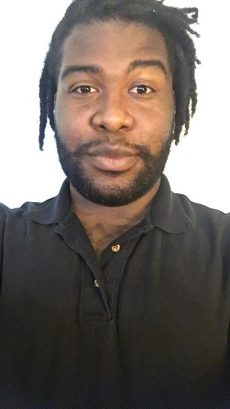
Freedom Summer Collegiate, an organization focused on educational equity for “college-bound high school students in underserved communities,” according to its website, received an award of $3,000 from the LGBTQ Fund of Mississippi to support Smith and Boynton’s class.
Boynton, a PhD candidate in the English Department at Kansas University, said the award offers the opportunity for the South to engage in Black and Black LGBTQ discourses that it has actively “silenced” as well as “disregarded and misconstrued.”
“As a Black queer person who’s also a southerner, this is the chance to be the person that I needed when I was a young person,” Boynton said. “The class is valuable because it’s teaching (students) the radical honest of how gender shows up in the world,” Boynton said.
Boynton and Smith have already experienced dialogues between themselves and students that gave them “chills,” they said.
The LGBTQ Fund’s ability to offer support to a wide range of queer life, and specifically to a “Black Art and Gender Politics” class is a necessary “recuperation” for southern LGBTQ life, said Boynton and Smith. “The significance of providing funds towards liberation for both practical and tangible needs, but also for academic instances, is extremely important,” Smith said.
“To have a fund, and then have a fund that is funding Black queerness acknowledges it as a well worth honoring,” Boynton said. “It says that we have stories worth learning about and histories that have value.”
‘The Complex LGBTQ History of the South’
Maigen Sullivan said her and Joshua Burford’s reasoning behind co-founding the Invisible Histories Project was born out of “the desire to preserve our own histories.” The Invisible Histories Project’s website describes it as “a community driven project whose goal is the collection and preservation of the complex LGBTQ history of the South.”
Currently focused on Alabama, Mississippi and Georgia, the Invisible Histories Project hopes to expand to the entire Southeast within the next 10 years.
“What would it have meant to us as queer youth in Alabama to have access to these histories, and have a way to connect to our elders,” Sullivan told the Mississippi Free Press. “You can’t really know where you’re going unless you know where you’ve been.”
Sullivan said her time working in higher education in Alabama also influenced the creation of the Invisible Histories Project.
“It wasn’t as meaningful as it could be” or grounded in the narratives of her community, Sullivan said. “I wanted to do something beyond me, and create something that will last forever and keep the memory of amazing people who would have otherwise flown under the radar.”
The LGBTQ Fund of Mississippi awarded the Invisible Histories project $5,800 that Sullivan said will be used to make the project more “digitally accessible” during the pandemic, and for three research trips for collecting histories in person.
“We’re going to be going to different cities across Mississippi visiting archives and getting to know people, so we can capture the rich queer history of Mississippi,” Sullivan said.
“It’s really cool when you’re preserving history, and then you can become a part of it,” Sullivan said. “It’s a double dip for us, the fact that we’re getting the award, but that we’re also getting to be a part of the counter narrative about the South.”
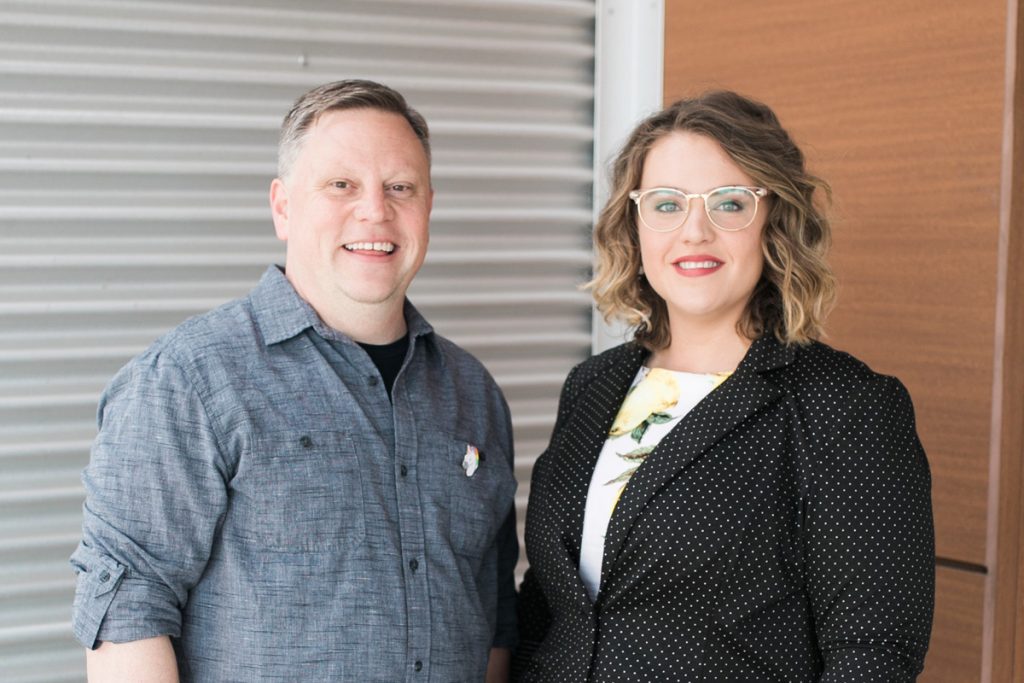
“When we think about the Deep South, especially Alabama and Mississippi, we think that the only way for a queer person to thrive, but really survive, is to leave,” Sullivan said. “We’re doing this work to show LGBTQ southerners that we have something to be proud of and that LGBTQ people have been thriving for decades.”
Jack Hoda, previously interim director of the Mississippi Safe Schools Coalition, an organization that centers around advocacy for LGBTQ youth in public schools, described the presence of the Invisible Histories Project and LGBTQ Fund of Mississippi as “mind-blowing.”
“I grew up in Mississippi and went to high school in Petal, Mississippi where I experienced hatred and isolation, so it’s cool to have a public and supported investment in the LGBTQ community,” Hoda said. Hoda’s own personal history with chartering a Gay Straight Alliance through the Mississippi Safe Schools Coalition at Petal High School will be preserved in the Invisible Histories Project.
“That’s history that gets lost, and so it’s really exciting that, in addition to bigger stories, the Invisible Histories Project is there to collect the smaller individual stories that are so important, Hoda said.
The Mississippi Safe Schools Coalition is donating its entire virtual history to the Invisible Histories Project, and also received an award from the LGBTQ Fund of Mississippi in the amount of $7,500 for queer youth organizing.
‘That’s Why We Just Have to Do This’
Sammy Moon said the Invisible Histories Project is collaborating with the Mississippi Museum of Art, which received a $7,500 grant for “highlighting queer artists.”
“They’re working together to identify, collect and archive the LGBTQ history of Mississippi. So the Museum of Art is going to bring people together to have conversations about LGBTQ history in Mississippi,” Moon said.
The philanthropist said he hopes the fund’s mere presence, coupled with all of its tangible work, will change life for LGBTQ people across the state, including young people in rural parts of the state who do not have a supportive local community to turn toward.
“Knowing that there was somebody out there that cared about people like me would’ve made all the difference,” Moon said. “That’s why we just have to do this, because there are still far too many kids that find themselves in that situation and far too many kids in Mississippi that end up on the street with no place to go. The fear for safety and the fear for life in many cases, particularly for transgender people, is so real, and somebody’s got to be addressing that.”





